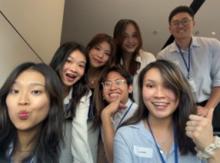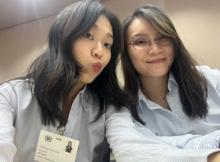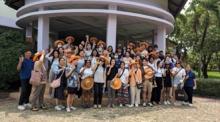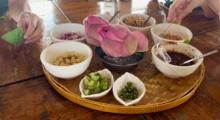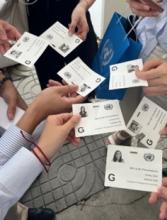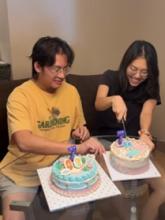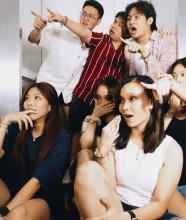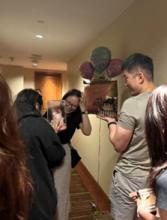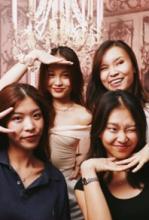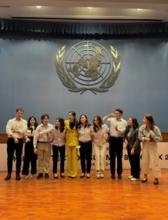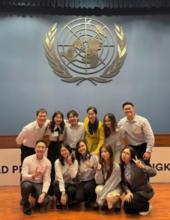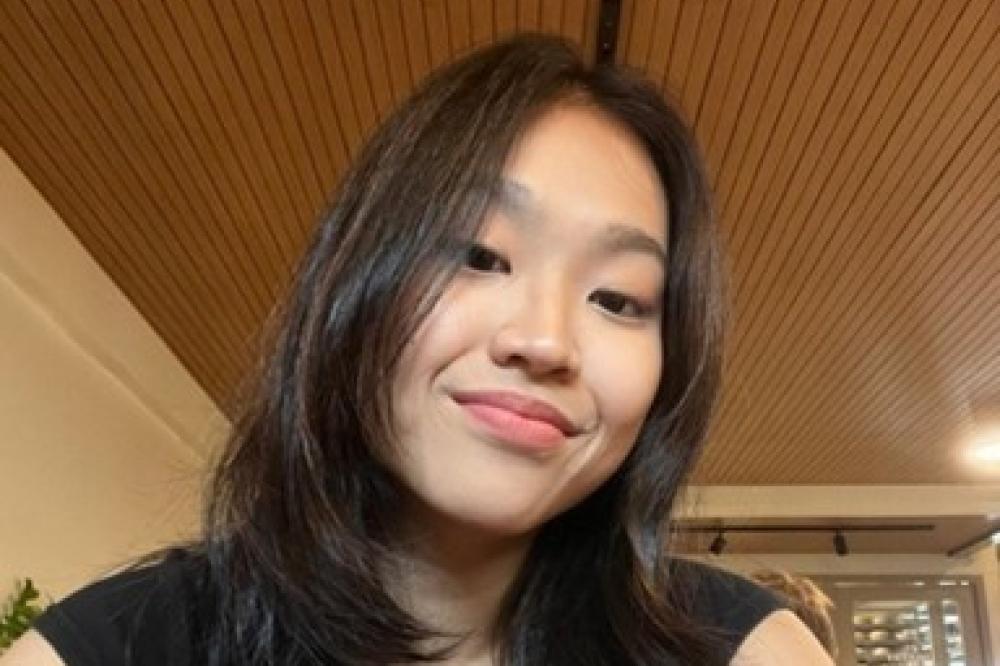
About The Course
This course explores the success factors of social change programmes in Bangkok through an interdisciplinary lens that draws from the fields of sociology, communication and management. In partnership with the United Nations Economic and Social Commission for Asia and the Pacific (UNESCAP), Mahidol University, the Asia Pacific Development Center on Disability (APCD), and NCSF Uplift, participants received hands-on guidance on a real-world project to address the social issue of disability inclusion and accessibility in Thailand. Over the course of six seminars at SMU during Term 2, 2023-24, participants learnt about life and work in the land of smiles, public communication frameworks that drive social change, as well as the systems that support and challenge social change management in the city and beyond. This was followed by an 11-day fieldwork and cultural immersion trip to Bangkok, Thailand, where participants met with social changemakers and presented their project deliverables to local stakeholders.
Reflection
Frankly speaking, I did not know what to expect from this Bangkok trip. Travelling to a new city, especially with a whole new group of people, was rather nerve-wrecking. But as with all things in life, many unexpected things happened nonetheless: Andrea and I learnt how to break down a chicken, Ms. Aiko from the United Nations ESCAP called my group “very hip-hop”, and 3 and a half of my 5-person group were down with food poisoning on the fourth day of our eleven-day trip.
Regardless, I loved the new experiences my group and I went through together. From participating in a Thai cultural dance workshop, to buying a total of over 30 eggs for breakfast and dinner, to presenting at the United Nations Conference Centre, each experience left me feeling a little more bitter-sweet about the trip eventually coming to an end.
Thailand is often referred to as the “Land of Smiles”. After interacting with the locals in Bangkok – from the people at the Asia-Pacific Development Center on Disability (APCD) and the Nakhon Pathom School for the Deaf, to the students from Mahidol University (MU), I immediately understood why. Everyone was so welcoming and eager to share their experiences and knowledge, be it about their language, culture or history. Their enthusiasm is definitely something I admire, and want to model after.
Our module revolved around the topic of disability inclusion. I have always known that Singapore has a long way to go in terms of inclusivity. When it comes to diversity and inclusion, there is seemingly a lot more tolerance than there is acceptance. Although it has been echoed numerous times, Singapore really does have a lot to learn from Thailand with regards to inclusivity. I would pin the blame on our government and country as a whole, but to be honest, I was a little embarrassed at how little I myself knew about disability and inclusion compared to my groupmates from MU. I realised over the last 5 months that I have a lot to learn.
It is often believed that society “accommodates” PWDs. Visiting the Nakhon Pathom School for the Deaf and APCD, I became acutely aware of how much individuals with disabilities have done to accommodate the rest of society. How lucky are we that our only communication barrier was one of language, where this issue could be resolved almost immediately with a translator, or even Google Translate? It would be odd to say that I have never noticed the difficulties PWDs face - of course people who are deaf struggle to communicate with those who are not. But I think the greatest discomfort came from witnessing it first hand and realising how big of a difference it makes compared to simply reading about it in a textbook.
I have been told of the sentiment that students often lead the push for change because they have the least to lose in the present and the most to lose in the future. Witnessing the passion Thai students possess for inclusivity and the actions they have taken to progress towards their goal, we have definitely fallen far behind in terms of genuinely pushing for the change we want to see. Our inability to realise that inclusivity, particularly disability inclusivity, will eventually be relevant to us all, is something we most definitely need to address. It is my hope that one day, we as a society realise the full importance of inclusivity, and act on this realisation.
This new city certainly turned out to be an amazing one. However, as they say, it is not so much about what you do, than who you do it with. I consider myself very lucky to have had the loveliest classmates. From the birthday surprises to the shared laughter on bus rides, it truly was the people who made the experience that much more memorable.
Above everything, I am immensely grateful and proud to have completed this module and trip with my groupmates, Andrea, Jace, Wei Jie and Shiori. Although we had our ups and downs, I cannot imagine doing this with anyone else. Although Andrea, Jace, and I signed up for this module together, I truly believe that we lucked out on having not only Shiori and Wei Jie, but also Belle and Pear, as our group mates. Additionally, there was Team Rueds’ honorary member, Daniel. As if we could not be any luckier, we ended up sharing an apartment with Daniel, who introduced us to numerous food places and helped us navigate through places. Together, we shared both laughter and tears, some shareable in a reflection, and others not as much. All in all, this group of people have taught me more than I could have ever imagined.
I am pretty bad at ending reflections, but I guess all I can say is thank you, thank you, thank you.
Final Presentation Video:
Thank You Notes to Benefactors
I would like to express my sincerest thanks to Mr. Raymond Goh and Mrs. Kwai Fong Goh for giving me the opportunity to embark on this wonderful and enriching trip without having to worry about my finances. Thank you for allowing me to be able to learn outside of the four walls of a classroom, and even beyond Singapore. This module has taught me so much more than a textbook can offer, and I will carry the lessons I have learnt with me through life. I look forward to being able to pay it forward like you have in the future. I am truly grateful for being able to end my university journey on such a unique note – thank you once again and forever!
